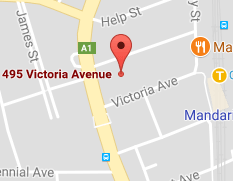
Casual workers aren’t normally entitled to be paid for any leave entitlements such as annual leave or long service leave. Their hourly pay rates and other employment conditions generally reflect this fact.
The Federal Court has recently handed down a decision however to grant a casual worker annual leave entitlements. The decision follows The Fair Work Commission deciding to incorporate a ‘model casual conversion’ clause into 85 modern awards, including in the retail, restaurant, banking, aged-care, agriculture, airline, mining, maritime and transport industries. Some commentators are suggesting that this judgment could see a mass conversion of casual workers into permanent employees. Potentially those workers would automatically be entitled to annual leave and sick pay for each year of service, along with various other benefits. In a similar case earlier this year in the Federal Circuit Court a casual worker won a claim for 15 years worth of annual leave entitlements! That case was about a dispute as to whether or not the worker was employed as a casual or a permanent employee.
These decisions should motivate business owners to carefully examine all applicable modern awards that may apply to their staff, particularly where long term, casual type staff are employed. Employers should check all applicable modern awards for their staff to identify whether a 'model casual conversion' clause has been written in and what the term is for casual employment to be considered for conversion to permanency.
Employers could face claims from workers for entitlements reserved for permanent employees, such as claims for annual leave, personal leave and for payment of a notice period on termination as well. Workers who are employed under a casual employment contract and who have been sick may have a right to claim for sick leave taken in the past.
The Court also added that an employee's status may change during the course of an employment. What is agreed to at the commencement of employment is relevant to the characterisation process (ie casual v’s permanent), but employment which commences as casual employment may become permanent full-time or permanent part-time because its characteristics change to reflect those of an on-going part-time or full-time employment.
The Federal Court decision could also see organisations targeted for punitive fines for being in breach of the Fair Work Act. The Federal Court has ordered a hearing to decide what pecuniary penalties should be imposed on the company involved for failure to meet its Fair Work obligations.
In the future employers may want to consider more carefully why they employ casual staff. Typically, employing casuals on a long-term basis is far more expensive than employing a permanent employee and these recent cases cast a new uncertainty over entitlements for casual employees.
If in doubt concerning these matters please contact your StewartBrown Partner or Manager. If you have significant numbers of casual staff in your business you might also seek advice from a lawyer specialising in employment law.




